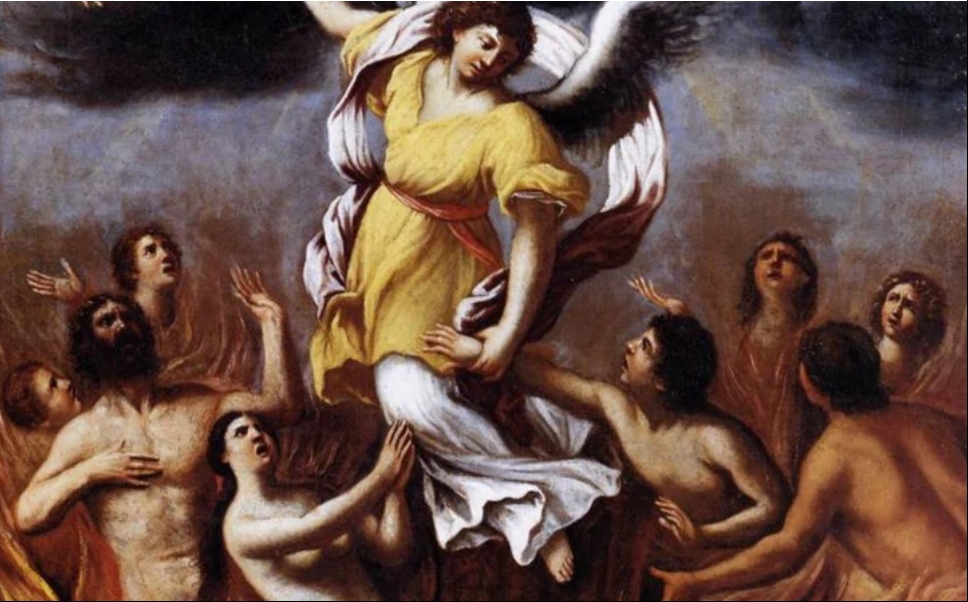How “Sweatshops” Help the Poor

One of the oldest myths about capitalism is the notion that factories that offer the poor higher wages to lure them off the streets (and away from lives of begging, stealing, prostitution, or worse) or away fom back-breaking farm labor somehow impoverishes and exploits them. They are said to work in “sweatshops” for “subsistence wages.”
That was the claim made by socialists and unionists in the early days of the industrial revolution, and it is still made today by the same category of malcontents – usually by people who have never themselves performed manual labor and experienced breaking a sweat while working. (I am not referring here to the red herring claim that most foreign “sweatshops” utilize some kind of slave labor. This is an outrageous propaganda ploy designed to portray defenders of free markets as being in favor of slavery).
The self-interest of labor unions in this anti-capitalist crusade has always been transparent: Unions cannot exist without somehow prohibiting competition from non-union labor, whether that labor is at home or abroad. Thus, they wage campaigns of propaganda, intimidation, or violence against non-union workers, whether they are in Indiana or Indonesia. They are not in the least concerned about the well-being of the Third World poor.
If the labor unions have their way, the poor whose lives are improved by their employment by multinational corporations would all be thrown out of work, many of whom would be forced to resort to crime, prostitution, or starvation. That is the “moral high ground” that has been staked out on college campuses all over America where unions have been successful in instigating “anti-sweatshop” campaigns, seminars, and protests.
That the anti-factory movement has always been motivated by either the socialists’ desire to destroy industrial civilization, or by the inherently non-competitive nature of organized labor, is further evidenced by the fact that there was never an “anti-sweat-farm movement.” Farm labor is still as rigorous as any physical labor, as it was 150 years ago. Indeed, in the early days of the industrial revolution – and in Third World countries today – one reason why families had so many more children than they do in wealthier countries today is that they were viewed as potential farm hands.
Abraham Lincoln had less than one year of formal education because his parents, like most others on the early nineteenth-century American frontier, needed him as a farm hand. But since agriculture was not considered to be a form of capitalism, and did not pose any real threat to unionized labor, there was never any significant social protest over it.
In a forthcoming article in the Journal of Labor Research Ben Powell and David Skarbek present the results of a survey of “sweatshops” in eleven Third World countries. In nine of the eleven countries, “sweatshop” wages in foreign factories located there were higher than the average. In Honduras, where almost half the working population lives on $2/day, “sweatshops” pay $13.10/day. “Sweatshop” wages are more than double the national average in Cambodia, Haiti, Nicaragua, and Honduras. The implication of this for all those naïve college students (and faculty) who have been duped into becoming anti-sweatshop protesters is that they should support and encourage more direct foreign investment in the Third World if they are at all concerned about the economic wellbeing of the people there.
It is never the workers in countries like Honduras who protest the existence of a new factory there built by a Nike or a General Motors. The people there benefit as consumers as well as workers, since there are more (and cheaper) consumer goods manufactured and sold in their country (as well as in other parts of the world). Capital investment of this sort is infinitely superior to the alternative – foreign aid – which always empowers the governmental recipients of the “aid,” making things even worse for the private economies of “aid” recipients. Market-based capital investment is always far superior to politicized capital allocation. Moreover, if the foreign investment fails, the economic burden falls on the investors and stockholders, not the poor Third World country.
During the socialist calculation debate of the early twentieth century, one of the responses that Ludwig von Mises made to the “market socialists” was that it could never be sufficient to simply read the Wall Street Journal and use the prices for inputs and other goods as revealed in the capitalist countries in order to make socialism work, as they contended. As important as private property and market-driven prices are to capitalism, another necessary ingredient for capitalist success is a culture of entrepreneurship, management, risk taking, marketing, financial know-how, and other skills that have developed over several hundred years in the capitalist countries. Without this, the market socialists could only play at pretend-capitalism.
Another virtue of foreign investment in the Third World is that it has the potential of transferring such knowledge to countries where it previously did not exist – or at least was not very prevalent. It is not only technology that the poor countries need, but the culture of capitalism. Without it they will never dig their way out of poverty.
The existence of foreign factories in poor countries also creates what economists call “agglomeration economies.” The location of a factory will cause many businesses of all types to sprout all around the factory to serve the factory itself as well as all of the employees. Thus, it is not just the factory jobs that are created. Furthermore, a successful investment in a poor country will send a signal to other potential investors that there is a stable environment for investment there, which can lead to even more investment, job creation and prosperity.
Capital investment in poor countries will cause wages to rise over time by increasing the marginal productivity of labor. This is what has occurred since the dawn of the industrial revolution and it is occurring today all around the world. Discouraging such investment, which is the objective of the anti-sweatshop movement, will do the opposite and cause wages to stagnate.
Finally, perhaps one of the strongest virtues of foreign “sweatshops” is that they weaken the hand of American labor unions. With few exceptions, American unions have long been at the forefront of anti-capitalist ideology and have supported virtually all the destructive tax and regulatory policies that have been so poisonous to American capitalism. Unions believe that they cannot exist unless workers can be convinced that employers are the enemies of the working class, if not society, and that they (the workers) need unions to protect them from these exploiters.
If you want to support the Third World poor, purchase more of the products that they labor to make in the capitalist enterprises that have located there.
The Choice Is…Ramen Noodles Or Abortion???
The House has defunded Planned Parenthood.
Abortion radicals are raging mad.
Raging mad that Republicans are exposing the abortion predators with story after story of criminal negligence, death, and exploitation at America’s taxpayer-subsidized death clinics.
Raging mad that Republican women dare to talk about the psychological harm and trauma to young women lured to Planned Parenthood and kept in the dark about abortion alternatives.
And mad that Republicans are describing in graphic detail the procedures used to rid the world of The Unplanned.
Most macabre abortion defense of the night so far: Earlier today, Wisconsin Democrat Rep. Gwen Moore argued that abortion was better for unplanned babies than a life “eating Ramen noodles” or “mayonnaise sandwiches.”
This is revealing in stunning fashion. Here’s a politician who has the unbridled arrogance to believe that she has the moral right to decide whether someone else’s life is worth living. She has arrogated to herself the right to determine whether another human being lives or dies based on her own dietary value system. She apparently believes that anyone who eats Ramen noodles — count most graduate students in this category — does not have a life worth living. Wow.
Perhaps if the baby were asked if she would prefer death over Ramen noodles, she just might say no, I’d like to live, thank you very much, and actually Ramen noodles aren’t all that bad. But if Gwen Moore gets her way, that baby will never get that choice.
Moore — who is up for re-election in 2012 — is a member of both the Congressional Black Caucus and Congressional Progressive Caucus. Her nanny state (progressive) creds are self-evident: In the House, Moore has earned, over the first session of the 109th Congress, 90% and higher legislative agenda approval scores from Planned Parenthood of Wisconsin, the National Association for the Advancement of Colored People, the Sierra Club of Wisconsin, and the Service Employees International Union.
Moore has focused herself legislatively on traditional Democratic and progressive issues, believing that the federal government should play a significant role in the amelioration of poverty and the resolution of difficult local problems. In fact, GovTrack.US calls Moore a far-left Democrat and points to the dot on the left side of the chart to show where Moore stands among her peers in Congress.
Specifically on abortion, Moore has voted against restricting interstate transport of minors to get abortions (2005) and in favor of expanding research to more embryonic stem cell lines (2007) and allowing human embryonic stem cell research (2005). In 2009, Moore voted in favor of the Prevention First Act, which focuses on preventing pregnancy and supports emergency contraception — with all programs supported by federal dollars.
La La La, I Can’t Hear You
I am concerned with a trend among some Catholics to downplay the gravity of news or even to make believe nothing bad is happening. At times, this is done outright, or by focusing on a small piece of good news to the exclusion of reality. It’s like the little boy who talks out loud to himself and says “I can’t hear you” as his mother tells him to stop misbehaving. We have all done it. It is voluntary blindness, a wish to see the world as it is NOT. It is a flight from reality.
We cannot be optimistic or pessimistic
True, as we read the news, we are hard pressed not to be affected by the events. Be it news of a disaster, a financial downturn, a political scandal, a raging and outrageous fad or a shocking immoral trend or monstrous sexual perversion.
But no matter how disconcerting the news may be, we must view it with complete serenity, objectivity and seriousness, with neither optimism nor illusions, always analyzing reality head on, even when it is disagreeable.
The apparitions of Our Lady of Fatima to the three children seers are very good examples of how Catholic ought to learn and react to bad events.
Our Lady of Fatima – Our Lady of Reality
For example, on July 13, 1917, Our Lady showed the children a vision of Hell. That’s pretty tough medicine… and to small children! Then she described a string of chastisements, sufferings and events that would happen if mankind did not convert. Another dose of strong medicine. Of reality.
Finally, after giving all the “bad” news, Our Lady promised her glorious triumph over evil and Satan by saying “In the end, My Immaculate Heart will triumph!”
The fact that Our Lady spoke of very bad times, and many sufferings, is important. She did not go straight into the good news. Our Lady spoke of the bad news first. Then She gave the good news, which only enhances the beauty and glory of Her Triumph. It serves to highlight Her power over evil.
But if we have blinded ourselves to the bad news, and stopped paying attention to what is happening in the world, we are not following Our Lady’s example. We are not getting prepared for the great trials that lie ahead.
And by refusing to see reality as it is, we fall into two lamentable states of mind:
a) Indirectly considering that things are too bad, too evil for God to deal with;
b) Indirectly failing to take into consideration God’s power to overcome these terrible evils that afflict the world right now.
We must remember that God is all powerful. And he will NOT put us in a situation that is above our forces.
We must read the news to know what is happening
Cultured persons necessarily have to be well-informed and, thus, ought to be aware of the news that surround and affect them. However, to be completely objective entails seeing reality entirely as it is without veils or prejudices. We make a judgment of the news by objectively analyzing its positive and negative aspects paying special attention to the latter so that it does not drag one down into depression or into a sense of hopelessness.
It is also wise to read between the lines and perhaps even with a grain of salt as many newspapers or news outfits have underlying moral, socio-political and ideological bias or bent and present news to push their leftist and liberal agenda. Otherwise if we are not careful, ideas they present could affect our philosophical and moral principles in an implicit but still insinuatingly active way through the tendencies.
We should keep up on events, especially those that affect the Church and Christian Civilization
As Catholics, it is our duty to pay keen attention to events affecting the Church and Christian Civilization since She is properly speaking the pillar of the world, of the temporal and civil order as well as the moral and spiritual order. Indeed we can affirm that History revolves around the Church. Anything that affects Her affects the world in turn.
As the teacher of Truth, the fountain of graces and the enemy of error and sin, we turn to the Church for Her maternal guidance in this vale of tears, for sadly, we live in an ambience saturated with materialism in a neo-pagan world pressed by the modern rat race.
Contemporary man worshipped the body almost as if an idol and negated the primacy of the soul. It has organized everything as if man were only body. Hence, when man forgets the supremacy of the soul over the body, tragic consequences and bad news abound.
No depression: Our Lady will win, even though things look bad
And seeing the sad state of affairs dominating mankind, God sent His Most Holy Mother to warn men at Fatima in 1917. While she painted a bleak picture, she also offered the solutions to thwart the impending chastisement. She asked for prayers, penance and amendment of life.
Amid the moral decadence we find ourselves in, we must exercise complete trust and confidence in Our Lady’s promise. While the disorderly passions, inflamed by the preternatural action of the Powers of Darkness, continually incite men and nations toward evil, we must never forget to turn to Our Lady for help for she is more powerful than all the satanic forces of Hell.
With the help of Divine grace, the practice of virtue and recourse to the Sacraments, we can lead an exemplary life that the Church asks of every faithful today even when we are confronted by a deluge of sad and tragic news.
Of ourselves, we cannot overcome evil. Of ourselves, we cannot deal with the bad news that threatens on all sides. But Our Lady can. And more importantly, She will.
She promised not only to overcome evil but to triumph over it, which is a super victory.
To block out reality because it is harsh is to imply that Our Lady has not the power and will not use that power to triumph over Satan. That is to judge Our Lady by our own small size and weakness.
Ten Reasons to Reject Socialism

Why we must protect the family,
private property and America from
the dangers of socialism
1. Socialism and communism are the same ideology
Communism is but an extreme form of socialism. From the ideological standpoint, there is no substantial difference between the two. In fact, the communist Soviet Union called itself the Union of Soviet Socialist Republics (1922-1991) and communist China, Cuba and Vietnam define themselves as socialist nations.
2. Socialism violates personal freedom
Socialism seeks to eliminate “injustice” by transferring rights and responsibilities from individuals and families to the State. In the process, socialism actually creates injustice. It destroys true liberty: the freedom to decide all matters that lie within our own competence and to follow the course shown by our reason, within the laws of morality, including the dictates of justice and charity.
3. Socialism violates human nature
Socialism is anti-natural. It destroys personal initiative – a fruit of our intellect and free will – and replaces it with State control. It tends to totalitarianism, with its government and police repression, wherever it is implemented.
4. Socialism violates private property
Socialism calls for “redistributing the wealth” by taking from the “rich” to give to the poor. It imposes taxes that punish those who have been able to take greater advantage of their productive talents, capacity to work or thrift. It uses taxation to promote economic and social egalitarianism, a goal that will be fully achieved, according to The Communist Manifesto, with the “abolition of private property.”
5. Socialism opposes traditional marriage
Socialism sees no moral reason for people to restrict sex to marriage, that is, to an indissoluble union between a man and a woman. Furthermore, socialism undermines private property, which Friedrich Engels, founder of modern socialism and communism along with Karl Marx, saw as the foundation of traditional marriage.
6. Socialism opposes parental rights in education
Socialism has the State, and not parents, control the education of children. Almost from birth, children are to be handed over to public institutions, where they will be taught what the State wants, regardless of parental views. Evolution must be taught. School prayer must be forbidden.
7. Socialism promotes radical equality
A supposed absolute equality among men is the fundamental assumption of socialism. Therefore, it sees any inequality as unjust in itself. Private employers are quickly portrayed as “exploiters” whose profits really belong to their employees. As a consequence, they rule out the system of wage earning.
8. Socialism promotes atheism
Belief in God, who unlike us is infinite, omnipotent and omniscient, clashes head-on with the principle of absolute equality. Socialism therefore rejects the spiritual, claiming that only matter exists. God, the soul, and the next life are illusions according to socialism.
9. Socialism promotes relativism
For socialism there are no absolute truths or revealed morals that establish standards of conduct that apply to everyone, everywhere, and always. Everything evolves, including right and wrong, good and evil. There is no place for the Ten Commandments, neither in the private mind nor in the public square.
10. Socialism mocks religion
According to Karl Marx, religion is “the opium of the people.” Lenin, founder of the Soviet Union, agreed: “Religion is opium for the people. Religion is a sort of spiritual booze in which the slaves of capital drown their human image, their demand for a life more or less worthy of man.”
May God protect America from socialism.
http://www.tfp.org/tfp-home/statements/10-reasons-to-reject-socialism.html
Preparing for Battle- Spiritual Warfare
 Put you on the armour of GOD, that you may be able to stand against the deceits of the devil.
Put you on the armour of GOD, that you may be able to stand against the deceits of the devil.
For our wrestling is not against flesh and blood; but against principalities and powers, against the rulers of the world of this darkness, against the spirits of wickedness in the high places.
Therefore, take unto you the armour of GOD, that you may be able to resist in the evil day and to stand in all things perfect. (Eph:6)
If you expect the wrong thing you’ll be disappointed with reality.
I think one of the main problems in Christianity today is that we expect the wrong thing and are ultimately disappointed with what we’ve got.
Here’s a list of things we expect from religion, which religion might give us up to a point, but when these expectations become the only thing we expect from religion we find it all unsatisfying. We get restless and start sniffing around for something else. We feel religion has let us down. We are disappointed and think it didn’t deliver what we thought it should:
1. Fellowship and Friendship – Christianity does offer a community to belong to, and it’s right that we wish to practice our faith within a warm, loving and forgiving community. However, if that’s all we’re looking for, then we might as well join a special interest club of some kind with people who have a lot in common with us.
2. Entertainment – Real Christianity is endlessly interesting, intriguing and anything but dull, but if entertainment or relief from boredom is all we’re looking for, we’ll be disappointed. The movies are better.
3. Activism – Christianity is the one movement that has inspired the most social change throughout history. It has led revolutions, overturned despots and brought peace and justice where there had been no hope. However, if we think that Christianity is all about activism and nothing else, then we’ll be disappointed. If we expect the church to be a means simply to change the world, then we’d be better off joining a political party.
4. Moral Code – Christianity offers the highest and most sublime values system the world has seen, but if all we are looking for is a rule book for life, then we’ll be disappointed. Christianity is more than that, and if all we want is rules, it will annoy us that some of the real saints are those who somehow seem to keep all the rules and yet operate totally outside the box.
5. Coherent Intellectual System If we are looking for an ultimate intellectual system in order to make sense of the world, Catholicism fits the bill. But if that is all we want we will be disappointed, for the faith is more than a philosophy.
6. Aesthetics If we are seeking beauty, Catholicism will fill our souls with the best music, art, literature, architecture and drama the world has yet conceived. But if all we are looking for is beauty we will be disappointed because Catholicism also offers for our consideration all that is kitsch and low class in religion. If we exalt fine taste above all else we will come away crestfallen.
If we are seeking any of these good things it is a good thing, but the good is the enemy of the best.
We must never forget that Christianity is first and foremost about the salvation of souls. It is about a lost humanity in search of salvation and the good shepherd God, who is out in the wilderness seeking and saving that which was lost.
The whole enterprise of religion is not primarily to promote a cause, to create beauty, order, morality or develop a community of faith. The economy of salvation is first and foremost established to redeem a fallen race, and to rescue souls.
Everything else is subject to that aim, and should serve that goal.
The expectation is this: we are engaged in a spiritual battle. That battle is going on every moment of our lives. There are eternal rewards for every decision. We cannot elect not to be involved in this battle because not to choose is to choose.
http://gkupsidedown.blogspot.com/search?updated-max=2007-11-08T20%3A18%3A00-05%3A00&max-results=50
Snowflakes- Heaven’s Purity and Grace

The Lord’s ways are in a tempest, and a whirlwind, and clouds are the dust of his feet. -Nahum 1:3
Accustomed to the northern winters of our country and having an admiration for a landscape covered with snow, once I asked myself: What would the reflection of God be expressed in snow? Since I didn’t know where to find an answer, I started to look for it making some simple observations.
What is the snow? We have snow, of course, when a sprinkle begins to fall from the sky in freezing temperatures, and instead of water descending to the earth, the clouds send us a white, light snowfall. Almost everything in the snowfall appears interesting to me.
It seems that when it begins, along with the snowflakes, an atmosphere of silence also falls on the earth. People are generally in their houses, the animals are quiet, and even nature seems to sleep, noiseless and tranquil, as it is covered with a white blanket of snow. This silence is certainly a factor that invites us to recollection, which invites us to think about higher things, the things of God, and our future life close to Him.
The purity symbolized by the snow is also remarkable. When we look upon a thick sheet of snow covering a valley or a mountain, without any dirt or filth in the panorama, the idea of purity seems to naturally come to our minds.
Noteworthy as well is the innocent beauty of the snow. In the countryside we note how even simple roofs, benches, fences, and walls that receive a coating of snow become beautiful. Creeks, lakes, parks, and forests, and the ugliest tree branches with a layer of snow appear handsome and noble. At times they can look like crystal branches of paradisiacal trees, and they invite us to admire God Who placed that exquisite marvel there for an ephemeral moment to be contemplated by men and angels.
What is the value of snow for man? Sometimes it is useful because when it melts, it fills our aquifers and lakes with fresh, much needed water for crops. In the mountains, it melts in the Spring and cascades down, sometimes in the form of waterfalls and sometimes in the meandering creeks, but always providing something beautiful and useful for mankind. Melting snow provides a home for the fish, refreshing drink for wildlife, and fresh water for the plants so they will bloom in the spring.
What do we know about the actual snowflake? A man named Wilson Bentley (1865-1931) from Jericho, Vermont became a famous photographer of snowflakes. He was a farmer in a part of our country where it snowed a great deal and he became fascinated with the snowflake. In the 1800’s, with simple photographic equipment and the natural light of the overcast sky, he photographed over 5,000 snowflakes. Although he had no formal schooling, he worked his farm, researched snowflakes and photographed them, wrote and published 60 articles on weather, the formation of dew, clouds, the effect of frost on cobwebs, and other topics. He also learned to play the piano, clarinet and was even in a local marching band. Here was a man who made good use of his time and talents! We are grateful to him for his work because without it we wouldn’t so easily be able to marvel at the great beauty and variety of the snowflakes. No two have ever been found to be alike.

This is another marvelous thing about the snow, which reflects the grandeur and magnificence of God in the diversity of His Creation. Can you imagine the millions and zillions of snowflakes that fall in just one winter and one place on earth? And no two snowflakes are alike. No mere man, however creative or ingenious, could be a comparable architect of even one snowfall.
When one remembers that God, Who is the author of all creation, has filled our world with His beautiful secrets, then everything becomes an exciting quest. We know with certainty that if we open our eyes to view creation with an eye toward Heaven, what we find will be awe-inspiring. Certainly snowflakes are!
The snow crystals on this page are photographs of real snowflakes. More pictures and information about the unique method used to capture their fleeting beauty can be found at:
SnowCrystals.com.
Jericho Historical Society: http://snowflakebentley.com/
http://www.traditioninaction.org/religious/f010rpSnow_Fitzgerald.htm
Innocence and Imagination

I think there is a line in George Bernard Shaw’s play St Joan in which the inquisitors say with exasperation about Joan’s visions, “Joan, Joan! These visions are all in your imagination!” To which she replies, “But of course! How else would God communicate with me?”
One of the major problems in our society and in our church is that we are suspicious of imagination. There are two forms of imagination. The primary is that part of us–our Soul–which connects us with all that is mysterious and mystical and intuitive and universal. This we might call Imagination with an “I”. The second is derived from the first and is the lower form of imagination–that faculty whereby we envision a solution, dream up a new future, devise the plot to a story, see in our mind’s eye what someone is describing or create something beautiful and amazing in our heads.
Our society and our church is suspicious and uncomfortable with both. Instead we prefer the utilitarian solution. We want facts. We want statistics. We trust engineers and mathematicians and scientists. We want proof. In religion we want certainty. We want dogma. We want rules. We want regulations. Do not misunderstand me. We need all this concrete, solid and “sure” stuff, but without Imagination–without contact with the Spiritual realm and all that is greater than us, transcendent and awesome and wonderful we are left with dull facts.
In religion we are suspicious of Imagination as well. We pull back from the mystical visions of the night. We draw away from the fiery chariot, the earthquake, wind and fire or the still, small voice of Love. We run from the immensity of Imagination–the power of the transcendent and the vast, swirling depths of the ocean of the impossible.
In place of the prophetic vision, the mystical transformation and the trembling ranks of angels we have substituted emotionalism. We mistake the sweet, sentimental comfort song for a real experience of the overwhelming Love of God. We accept the feel good self help sermon as a substitute for the transformation by the tongues of fire–fire that promises to transform only by burning away all the wood, hay and stubble in our lives. We opt for the false comfort of universalism–in which everyone gets to go to Heaven because God (who we have made into a sort of celestial Colonel Sanders) is too nice to send anyone to Hell.
What is required along with a renewal of the Spiritual Imagination is the renewal of Innocence. By this I do not mean naivete, or immaturity, but the sort of child like innocence demanded by the gospel. Along with out distrust of Imagination is a cynicism and skepticism which destroys the soul. The Innocence of which I am speaking is the sort of cheerful innocence which regards miracles as not only possible, but to be expected. This child like innocence sees wonderful connections between things the rationalist would never connect.
Therese (who once played the part of Joan of Arc) as a child once saw the stars in the shape of the letter ‘T’ and exclaimed with delight that her name was written in heaven.
C.S.Lewis once wrote, “The saints, the poets and the children were right.” They had this Innocence and Imagination, and so their hearts were open to Eternity.
http://gkupsidedown.blogspot.com/2011/02/innocence-and-imagination.html
Consecration to The Immaculate Heart of Mary

“Consecration to the Mother of God,” says Pope Pius XII, “is a total gift of self, for the whole of life and for all eternity; and a gift which is not a mere formality or sentimentality, but effectual, comprising the full intensity of the Christian life – Marian life.” This consecration, the Pope explained, “tends essentially to union with Jesus, under the guidance of Mary.”
By our consecration we promise to become dependent on Mary in all things: to offer all our prayers and oblations to God through Mary, and to seek every gift from God through Mary. And we do this with the greatest confidence. Since she is our mother, she knows our needs better than we; and since she is Queen of Heaven, she has immediate access to the infinite treasury of graces in the Kingdom of her Divine Son.
Mary is not only the Mother of Jesus, Son of the Eternal Father; she is also Mother of all the Father’s adopted children. As their Mother, she has been given the role of molding them into the likeness of Jesus.
Every work of grace, every increase of grace, is a work of the Holy Spirit; but as in the Incarnation of the Divine Word God used human instruments, so does He in the sanctification of each individual soul. As He chose Mary as the instrument through whom He would come to us, so He chose Mary as the instrument through whom we should go to Him. And both the mystery of God coming to us through Mary, and our being led to God through Mary, is a work of the Holy Spirit. So when we speak of Mary’s unique role in our sanctification, she is but the instrument the Holy Spirit uses in sharing with us the divine life of grace. It is in this sense that Mary fashions us into the likeness of Christ.
However, that this transformation – through Mary’s help – be accomplished in a notable degree, there must be an awareness of her role in our sanctification, a confidence in her maternal concern and in her power under God, a surrender of oneself into her hands, and a fervent, frequent and confident seeking of her aid. This usually comes through some form of consecration to the Mother of God.
At Fatima Our Lady asked for consecration to her Immaculate Heart, a consecration which, among other things, calls for the devotion of the Five First Saturdays, which includes the Rosary, meditation and Communions of reparation – all done in reparation to her Immaculate Heart. It involves a striving to fulfill her requests for prayer and sacrifices for the conversion of sinners and in reparation for offenses against the Divine Majesty. In a word, it involves a striving to fulfill all that she asked for at Fatima, and trying to bring others to heed her requests.
Living that consecration means becoming an apostle of Mary, striving to imitate her virtues, and to place in her hands the flowers of little sacrifices of reparation for the salvation of souls, so that we might strengthen her hand against the attacks of the Evil One, and hasten the day of the triumph of her Immaculate Heart. To everyone who makes that consecration and sincerely tries to live it, the words of Our Lady to the child Lucia at Fatima would also apply: “I will never leave you; my Immaculate Heart will be your refuge, and the way that will lead you to God.”
If consecration to Mary “tends essentially to union with Jesus, under the guidance of Mary,” as Pope Pius XII pointed out, we must remember that any gradual transformation into Christ requires a gradual loving acceptance of a greater share in His redeeming Cross.
So when we offer ourselves to Mary to lead us, to form us into the likeness of her Son, we are offering to let her lead us along the way of the Cross.
Our Blessed Mother’s great concern is the salvation of the souls of her children, many of whom are being lost. She looks for generous souls among her children, who are willing to let her lead them close behind her Son, sharing more fully in His redemptive mission, filling up what is wanting in other members of the Body of Christ. Little by little they are transformed to see as Christ sees, and to desire what He desires. God wants to draw us closer to Himself, sharing more fully His Divine life; but we must understand what the fulfillment of this requires.
In our Rosary, we contemplate Mary in Heaven in the Glorious Mysteries, because she had so unique a role on earth in the Sorrowful Mysteries. This is the pattern that is offered to each of us, and of which we are reminded each time we pray the Rosary.
Consecration to Mary, then, requires a childlike simplicity and confidence, letting her lead one by the hand, trusting – regardless of what lies ahead – that she knows better than we what contributes most to God’s glory, our sanctification and the salvation of souls.
FATIMA – A TRUE PERSPECTIVE
While many decades have passed since Our Lady gave to the world her message at Fatima in 1917, there are comparatively few who have taken that message seriously, and of those who have, some have interpreted it erroneously. It is true that the fulfillment or nonfulfillment of her requests would have great consequences for the world situation, for world peace, for the very survival of nations. Nevertheless, her message is essentially a spiritual one, a call for prayer and penance – a conversion of life, and a dire warning of what would happen if her requests were not fulfilled. Her words were truly prophetic, for much of what she predicted has come to pass.
Fr. Thomas McGlynn, O.P. is the artist who carved the large marble statue of Our Lady above the main entrance to the basilica in Fatima. In the course of his work at Fatima, Fr. McGlynn had several long interviews with Sr. Lucia, the last living witness of the apparitions of Our Lady at Fatima in 1917. Sr. Lucia knew that Father McGlynn was going to write a book on Fatima as soon as he completed his work on the statue.
“In your writing,” Sr. Lucia said to Father, “please stress the spiritual meaning of things, in order to raise minds which today have become so materialistic to regions of the supernatural; so that they may understand the true meaning and purpose of the coming of Our Lady to earth, which is to bring souls to Heaven, to draw them to God.”
Unfortunately, however, there are some who stress predominantly the political aspects of the Fatima message, i.e., the worldwide political consequences, if Our Lady’s requests are not heeded. We all are aware of the terrible realities and consequences of war, and especially of nuclear war, or of persecution of the Church; and it is natural to think of Our Lady’s message in terms of avoiding these calamities. Yet, we must not let this perspective cloud our minds as to our own personal obligations. As Msgr. William McGrath has pointed out:
“When all is said and done, our primary responsibility is not the conversion of Russia or the prevention of world wars, but the salvation of that little world within ourselves over which, with God’s help, we must exercise control, and for which we shall one day have to render an account to God in judgment. What will it profit us, even if Russia is converted and an era of peace be granted to humanity, if we have failed in the great task for which we were created, the salvation of our own immortal souls.”
Fr. McGlynn pointed out in his book VISION OF FATIMA, that Fatima is, first of all, a dreadful warning to the world to stop sinning. The enormity of mankind’s rebellion against God, and God’s infinite aversion to sin, form the foundation of the Fatima message. It is a warning that the time of God’s justice will come to pass, if men do not take advantage of this time of His mercy, this special opportunity of making reparation through the Immaculate Heart of Mary.
Our Lady showed the three children a vision of hell. That vision was not for their instruction and warning, but for ours. The Blessed Virgin had assured them that they were going to be saved. Yet, as Fr. McGlynn pointed out, “All the bleeding, dying and despair of a thousand wars cannot equal the disaster of a single soul being damned. We miss the spiritual meaning of things,” he said, “if we think Our Lady came to Fatima to tell us how to keep out of a third world war, or how to convert Russia, or how to achieve tranquility in our earthly existence. She came to tell us how to keep out of hell.”
ACT OF CONSECRATION TO THE IMMACULATE HEART OF MARY
Any formula may be used to consecrate oneself to the Mother of God, as long as it involves a total oblation of oneself. As a suggestion, one of the following consecrations could be renewed each first Saturday with the shorter formula renewed daily.
1. O Virgin Mary, most powerful Mother of Mercy, Queen of Heaven and earth, in accordance with your wish made known at Fatima, I consecrate myself today to your Immaculate Heart. To you I entrust all that I have, all that I am. Reign over me, dearest Mother, that I may be yours in prosperity, in adversity, in joy and in sorrow, in health and in sickness, in life and in death.
Most compassionate Heart of Mary, Queen of Virgins, watch over my mind and heart and preserve me from the deluge of impurity which you lamented so sorrowfully at Fatima. I want to be pure like you. I want to atone for the many crimes committed against Jesus and you. I want to call down upon this country and the whole world the peace of God in justice and charity.
Mindful of this consecration, I now promise to strive to imitate you by the practice of the Christian virtues without regard for human respect. I resolve to receive Holy Communion on the first Saturday of every month when possible, and to offer daily five decades of the Rosary, with all my sacrifices in the spirit of penance and reparation. Amen.
2, I, . . ., a faithless sinner, renew and ratify today in thy Heart, O Immaculate Mother, the vows of my Baptism; I renounce forever Satan, his pomps and works; and I give myself entirely to Jesus Christ, the Incarnate Wisdom, to carry my cross after Him all the days of my life, and to be more faithful to Him than I have ever been before.
Queen of the Most Holy Rosary, in the presence of all the heavenly court, I choose thee this day for my Mother and Mistress. I deliver and consecrate to thee, and to thy Immaculate Heart, as thy child and slave of love, my body and soul, my goods, both interior and exterior, and even the value of all my good actions, past, present and future; leaving to thee the entire and full right of disposing of me, and all that belongs to me, without exception, according to thy good pleasure, for the greater glory of God, in time and in eternity. Amen.
Short Daily Renewal of Consecration to the Immaculate Heart of Mary
Queen of the Most Holy Rosary, I renew my consecration to you and to your Immaculate Heart. Please accept me, my dear Mother, and use me as you wish to accomplish your designs upon the world. I am all yours, my Mother, my Queen, and all that I have is yours.
TO JESUS THROUGH MARY
Lest there should be any misconception about the place of devotion to Mary in Catholic piety, we honor in a special way the Immaculate Heart of the Mother of Jesus, i.e., the person of Mary in her eminent sanctity and glorification by God, because it is the wish of her Son – as Our Lady revealed in her second apparition at Fatima. Jesus knows well that true devotion to His Mother leads souls to Him. As Pope Paul VI wrote in his encyclical celebrating the centenary of the apparitions at Lourdes:
“Everything in Mary leads us toward her Son, our only Savior, by whose foreseen merits she was preserved immaculate and full of grace; everything in Mary lifts up our hearts to the praise of the Holy Trinity.”
And as Our Lady assured Lucy, June 13, 1917:
“I will never abandon you, my child. My Immaculate Heart will be your refuge and the way that will lead you to God.”
The Church sees Mary, then, not as the goal, but as the guide, who always leads souls who honor her with true devotion – to her Son, especially to Jesus in the Blessed Sacrament. When we pray to the Immaculate Heart of Mary for help in time of need, she in turn points to the Tabernacle, to Him who is “the Way, the Truth, and the Life,” and has a way of conveying to us what she said to the steward at Cana: “Do whatever he tells you.” (Jn.2:5)















































